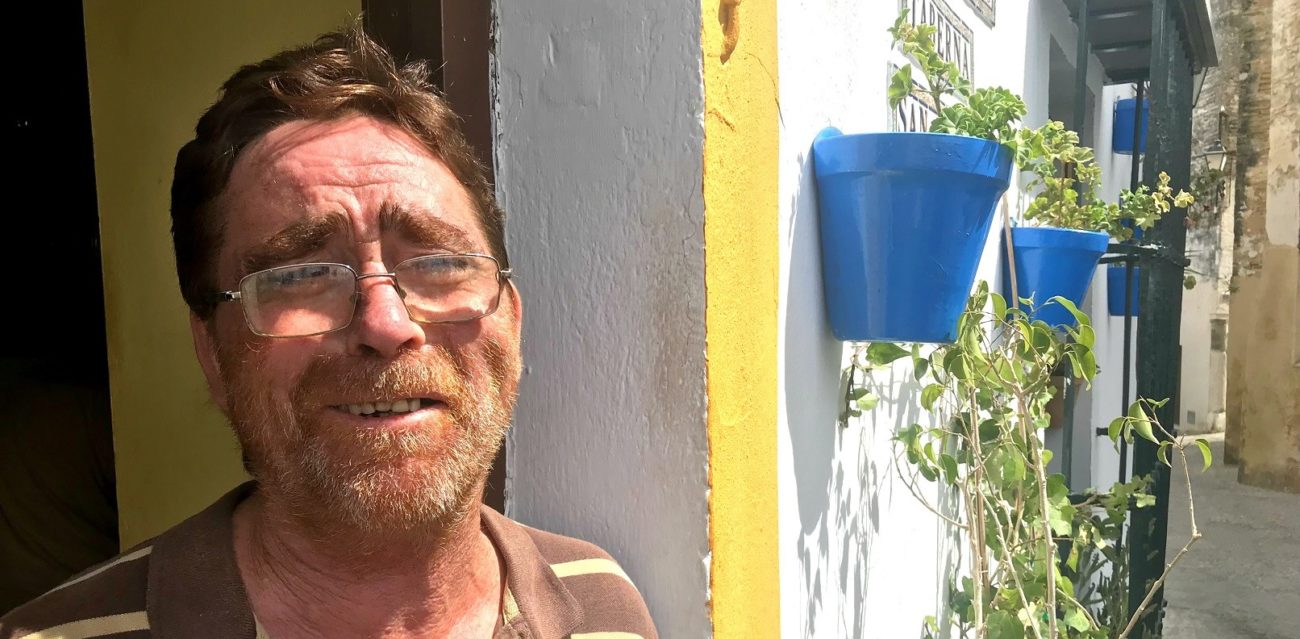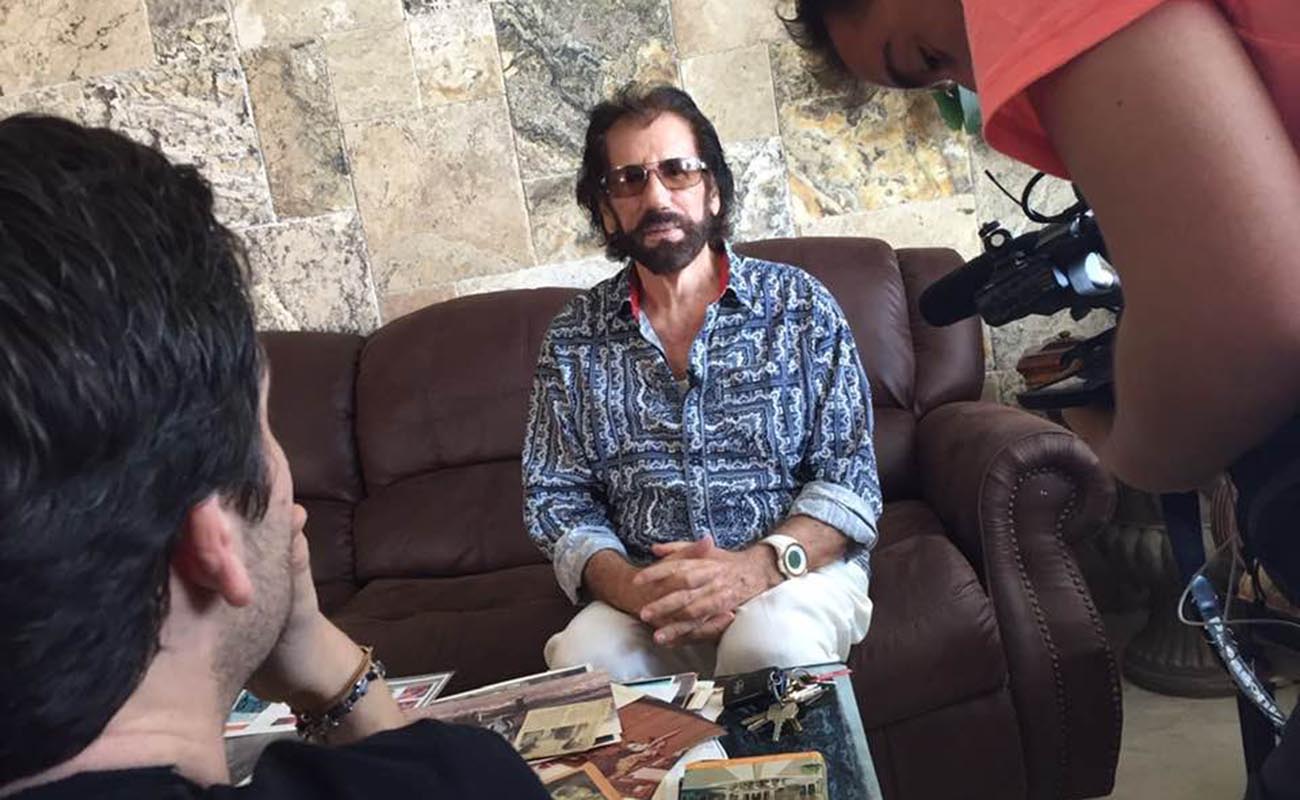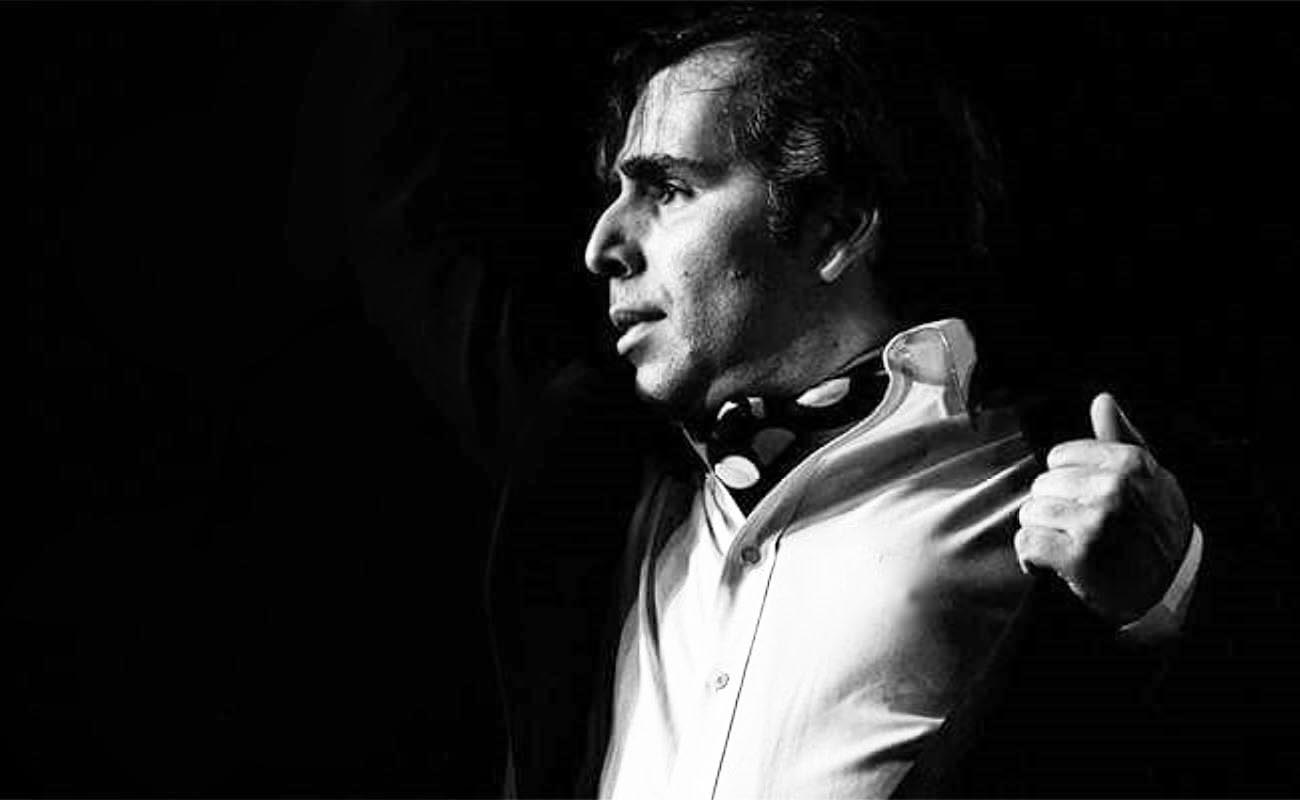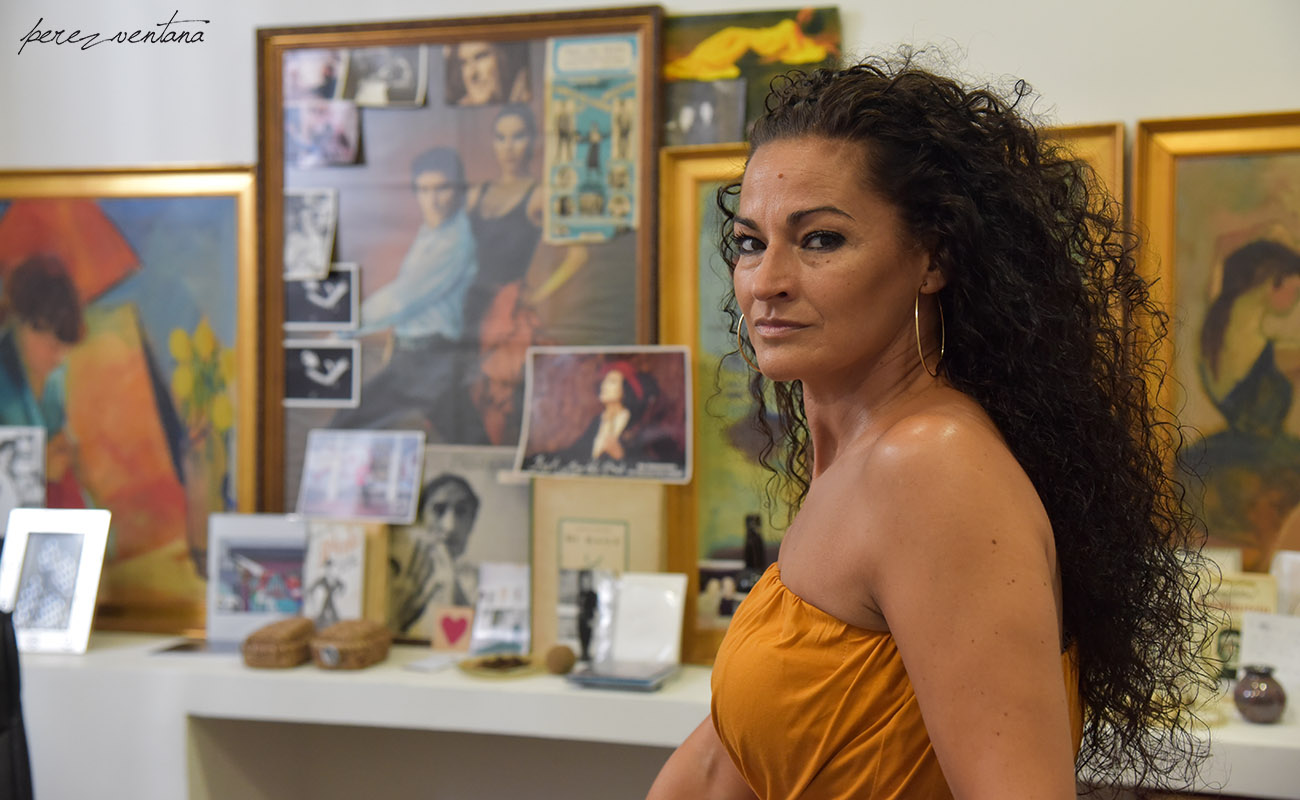Salmonete: “I have to take advantage of this moment, but I need help”
After the handshake, he climbs into the backseat and we get in our way towards Arcos de la Frontera, a veritable adventure for yours truly. “My mom is from Bornes, there she’s known as ‘La Calvaria’, she always worked in the fields and she used to sing really well por saeta”, he says as we look for the Jerez’s exit. Joaquín

After the handshake, he climbs into the backseat and we get in our way towards Arcos de la Frontera, a veritable adventure for yours truly. “My mom is from Bornes, there she’s known as ‘La Calvaria’, she always worked in the fields and she used to sing really well por saeta”, he says as we look for the Jerez’s exit. Joaquín Jiménez Domínguez, born in Jerez in 1962, became a prodigy of cante since an early age due to the strength of his voice and his command of the cantes de fuelle (“cantes of stamina”), like Chocolate used to say. Dignified and gracious, he talks humbly, intent on socializing and getting away from the loneliness that often keeps him company. It may seem like he’s been forgotten in his own land, as he no longer performs in any peña, festival or recital of any kind. Well, to tell the truth, one tabanco in Jerez advertised him as a star a few weeks ago, aware that the public would not expect an artist of his calibre to perform in places of little economic importance, if you know what I mean. Now and then he wanders along the streets in the San Miguel district, walking towards the city centre where there’s a flamenco atmosphere and some people want to listen to him. He always avoids bothering people, though, because his essence is bohemian and, as stated above, he’s exceedingly gracious. Yet, he needs warmth, and it looks like he’s starting to get it.
“I’m in that Facebook, in vogue once again”, he says, regarding the great response he’s had about his scheduled performance at the Círculo Flamenco de Madrid at the start of the season, on September 27, accompanied by the guitar of Domingo Rubichi. “I need to make the best of this moment, but I’ll need help, so I don’t end up by the wayside”, he says with some sadness, feeling sidelined by today’s flamenco scene. “It’s important that pure, authentic cante doesn’t disappear, the cante jondo of Antonio Mairena, Fosforito, Menese… with whom I shared the stage in festivals when I was a kid. Camarón and myself were the youngest cantaores in those places, and some artists who later became more famous than me didn’t perform in public yet, at that time”. Joaquín is referring to the time when he won the first prize at the Concurso Nacional de Mairena del Alcor when he was just fourteen years old (after several years when no one was able to win it), and other important contests such as the Concurso Nacional de Arte Flamenco de Córdoba. “The contest I never took part in was the Cante de las Minas de la Unión, but I won’t take part now, because if I don’t win, then I lose cachet”, he says as we get on Arcos’ main avenue.
We have come here to enjoy Joaquín’s cante among friends, old-school flamenco aficionados. Arcos, a particularly charming town in the so-called “Route of the White Towns” in the hills of Cádiz province, has always stood by traditional cante, a fact that’s confirmed every year with the Velá de las Nieves festival, which celebrated its 58th edition last August. “Well, I’ve never been to that festival, that’s weird”, says Salmonete. We arrive at the San Pedro district and head to the Taberna of the good Rafael Vega, son of the illustrious aficionado of the same name, who was always able to bring great flamenco stars to this magical town, from La Paquera and Lebrijano to Lola Flores and Rocío Jurado. There we meet Juan Manuel Velázquez-Gaztelu (brother of the master of flamenco communications, José María, and father of Curro, who is also immersed in the world of flamenco), as well as other aficionados from the area such as Juan Alvarado, the link uniting all of them. We can hear the guitar of Manuel de la Julia, the young tocaorrenowned for his skill, playing por bulerías por soleá, and Salmonete starts to warm up. He gets near the guitarist and starts to delight our senses with that yearning echo which doesn’t want to fade. He has compásand duende which, although it may sound cliché, not everyone has. After this cante we must breath again, for he has left us breathless, with our bones chilled. We feast on chicken-and-rice stew. Joaquín eats from a plate as big as a bullfighting ring, and he’s not the only one, “this is so good!”. He’s at ease because he feels loved, because he’s treated as he deserves: like one of our great artists of cante and upholder of our traditions. He continues por fandangos, taranta, bulería and seguiriyas. Like someone once said, “it’s surprising he’s not related to Terremoto, because he has pellizco just like him”. At the end of his performance, it’s time to have some wine, after the obligatory photos with those he brought to tears… We return to Jerez and drop him off at his house in San Telmo. Happy and grateful, he insists: “Don’t leave me, don’t leave me, because I have to make the best of this moment”.




